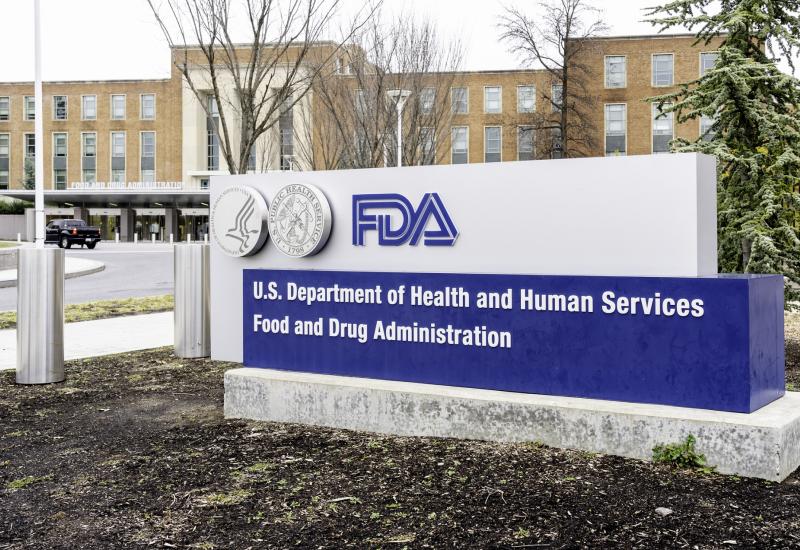
FDA green and red lights: April 2024
A tumour-agnostic label for Enhertu leads April’s US oncology approvals.
A tumour-agnostic label for Enhertu leads April’s US oncology approvals.

Enhertu is already known to be a highly effective HER2-targeting drug in breast, lung and gastric cancers. While its latest clinical success came in breast cancer described as “HER2-ultralow”, its next marketing battleground is in the tumour-agnostic setting of HER2-positive solid tumour patients who have no remaining treatment options.
That’s courtesy of an unexpectedly quick US approval, granted on an accelerated basis, which features as the most notable of the FDA’s green lights given to oncology drugs last month. The fact the agency accepted the filing only on 29 January, and gave the drug its blessing nearly two months before the PDUFA date, makes it all the more remarkable.
Few had expected things to have gone so smoothly. When Daiichi Sankyo and AstraZeneca presented tumour-agnostic data from Enhertu’s Destiny-Pantumor02 study at last year’s ASCO, efficacy differed among different cancer types and among HER2 expression levels, and the fact some of the cancers involved were far from niche indications was seen as one reason for possible regulatory caution.
In the event none of these fears materialised. The approval was backed by ORR data from Destiny-Pantumor02, as well as two smaller trials in HER2-positive tumours in salvage settings, Destiny-Lung01 and Destiny-CRC02.
Also noted
April’s US approvals also included Bristol Myers Squibb/2seventy Bio’s Abecma and Johnson & Johnson/Legend’s Carvykti in early lines of multiple myeloma. These successes had also been far from guaranteed, but a March adcom dispelled many of the fears, though the panel’s backing for Carvykti was more resounding than that for Abecma.
Alecensa secured first-mover advantage in adjuvant ALK-positive NSCLC, the recruitment status of Day One’s Ojemda confirmatory trial didn't turn out to be an issue, and ImmunityBio’s Anktiva overcame its CRL to see approval at last. Last week Pfizer/Genmab’s Seagen-originated Tivdak saw its accelerated nod converted to full approval based on an OS benefit in the InnovaTV-301 trial.
Selected April 2024 US regulatory decisions in oncology
| PDUFA date | Outcome | Drug | Company | Indication | Note |
|---|---|---|---|---|---|
| 16 Dec 2023* | Full approval, 5 Apr | Abecma | BMS/ 2seventy | 3rd-line multiple myeloma | Accepted for standard review 17 Apr 2023 |
| 5 Apr 2024 | Full approval, 5 Apr | Carvykti | J&J/ Legend | 2nd-line multiple myeloma | Accepted for standard review 6 Jun 2023 |
| 23 Apr 2024 | Full approval, 22 Apr | Anktiva | Altor (ImmunityBio) | BCG combo in NMIBC | Had CRL in May 2023 |
| 30 Apr 2024 | AA, 23 Apr | Ojemda | Day One Biopharmaceuticals | r/r paediatric low-grade glioma with BRAF fusion/rearrangement or BRAF V600 mutation | Accepted for priority review 30 Oct 2023 |
| 9 May 2024 | Full approval, 29 Apr | Tivdak | Pfizer/ Genmab | Post-chemo cervical cancer | Converts from earlier AA |
| 22 May 2024 | Full approval, 18 Apr | Alecensa | Roche | Adjuvant ALK+ve NSCLC | Accepted for priority review 31 Jan 2024 |
| 30 May 2024 | AA, 5 Apr | Enhertu | Daiichi Sankyo/ AstraZeneca | HER2+ve solid tumours with no further treatment options | Accepted for priority review 29 Jan 2024 |
Notes: AA=accelerated approval; *missed because of 15 Mar 2024 adcom. Source: company statements.
In Enhertu’s newly updated label the FDA cites a 51% ORR in Destiny-Pantumor02. ASCO 2023 data had shown 37% in all HER2-positive cancers, rising to 61% in patients with very high HER2 expression.
The bull case at the time, which has now come to pass, was that the FDA would grant a tumour-agnostic approval, having earlier permitted some such labels. However, these comprised tiny patient populations, notably NTRK-positive cancers, in which Lilly's Vitrakvi is approved, and MSI-high or mismatch repair deficient tumours, for which Merck & Co's Keytruda and Bristol’s Opdivo plus Yervoy are available.
One suggestion was that the FDA might prefer a tumour-by-tumour approach, especially considering the uneven efficacy seen in Destiny-Pantumor02. Here the best ORR numbers were in cervical and endometrial cancers, and the worst in pancreatic; meanwhile, in biliary tract cancer, Enhertu only seemed to work at HER2 expression of 3+ by immunohistochemistry, and not below.
Now US doctors have free rein to decide in which HER2-positive cancers to prescribe Enhertu. The drug’s especially encouraging activity in endometrial cancer (47% ORR at IHC 2+, and 85% at IHC 3+) sets it up as a fierce competitor for DualityBio/BioNTech, which recently took its rival anti-HER2 ADC DB-1303/BNT323 into a phase 3 cancer study specifically in endometrial cancer.
865













